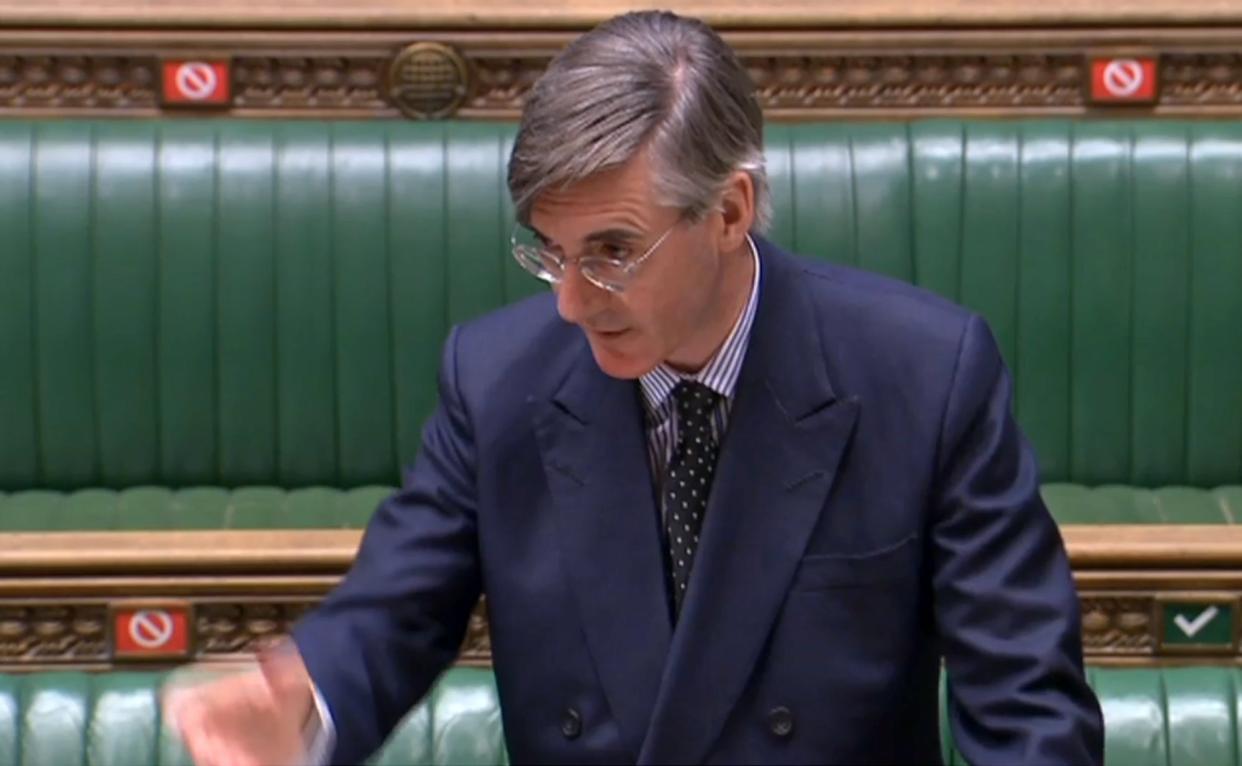MPs just spent three hours waiting to say their own name – and then several of them got it wrong

Work from home if you can and only go to work if you cannot work from home, is the current government guidance, unchanged from when it was issued on live television by Boris Johnson three weeks ago, in his very best Fisher-Price My First Statesman voice.
That guidance exists to keep the people as protected as possible, from a disease that has so far killed almost 60,000 people in the UK, according to the Office for National Statistics.
It bears repeating again. Only go to work if you cannot work from home. That is the government’s explicit instruction.
And it bears repeating again, because on Tuesday, that very same government compelled more than 500 people to come to work, from every corner of the country, so that they could stand in a queue stretching up, down and around the Houses of Parliament for three full hours so that each of them could utter two words – “aye” or “no”.
All of this was the brainchild of Jacob Rees-Mogg, who at all times could hardly have looked more thrilled. Silly games for silly boys. Rees-Mogg has now suspended the virtual parliament, clearly having become aware that the flexible, grown-up way in which MPs were behaving, setting the correct example to the rest of the country, could not be allowed to go on.
So now, back they all were, being made to vote, in person, on the new, socially distanced voting arrangements, which involves a queue of more than half a mile long, and each MP taking it in turns to vote, one by one.
I would like to say it was the most ridiculous thing I’ve ever seen, but sadly I cannot, as I did not see it. It happened in my workplace, of course, but I wasn’t there, because I am following the government’s advice and working from home. I am doing as instructed, staying alert, controlling the virus and saving lives. I merely do what the government says. I wouldn’t dare be stupid enough to do what it actually does.
There they waited, under the afternoon sun, minute after minute, hour after hour. When they made it round the airport-style queues up through Portcullis House, down through Westminster Hall and around New Palace Yard, each arrived at the despatch boxes of the House of Commons, said their name, followed by the word “aye” or “no”, then they went back and did the whole thing again.
A few struggled. Liz Truss decided her name was “Liz Truss South West Norfolk.” None of the others, I am pleased to report, had any struggles with their own name, apart from Mark Francois, who said he was Ed Balls, you know, just for the lols.
Stephen Crabb got hopelessly lost, wandering down the “no” side of the despatch boxes but voting “aye”, being told he’d gone the wrong way, and then walking back round to the “aye” side and saying “no”. It may even have been recorded as a spoilt ballot.
The whole spectacle was as tragic as it was pathetic, the childish fantasy of a man-boy who appears to be in politics for no greater reason beyond an almost parasexual excitement for the mace and the stockings and the Black Rod and the risible moth-eaten thrill of it all.
Though it was by accident rather than design, a certain amount of brighter light was nonetheless shone on the systematic dysfunction of British politics.
MPs earn £81,000 a year, not including travel and various other expenses. Many earn far more. The House of Commons sits for about 150 days a year. Three hours of MPs standing about waiting to say their own name out loud costs the taxpayer somewhere in the region of £200,000. Or to use the preferred SI unit, roughly the starting salary of eight NHS nurses. Or 30,000 protective gowns for them to wear, whichever you prefer.
This is not to say it’s the MPs’ fault. It isn’t. None of this was their decision. They just do as they’re told. And you’ll find no more certain evidence for that than watching more than 400 grown men and women, the people who are meant to be running the country in the middle of the gravest crisis in eight decades, getting visibly angry at the farce in which they have been forced to take part, and then voting 261 to 163 in favour of doing it every day for the foreseeable future.
Read more
Constitutional experts warn against MPs’ return to Westminster
Jacob Rees-Mogg criticised for suggesting MPs should return to Commons
Rees-Mogg defends Hancock after telling Labour MP to consider ‘tone’

 Yahoo News
Yahoo News 
